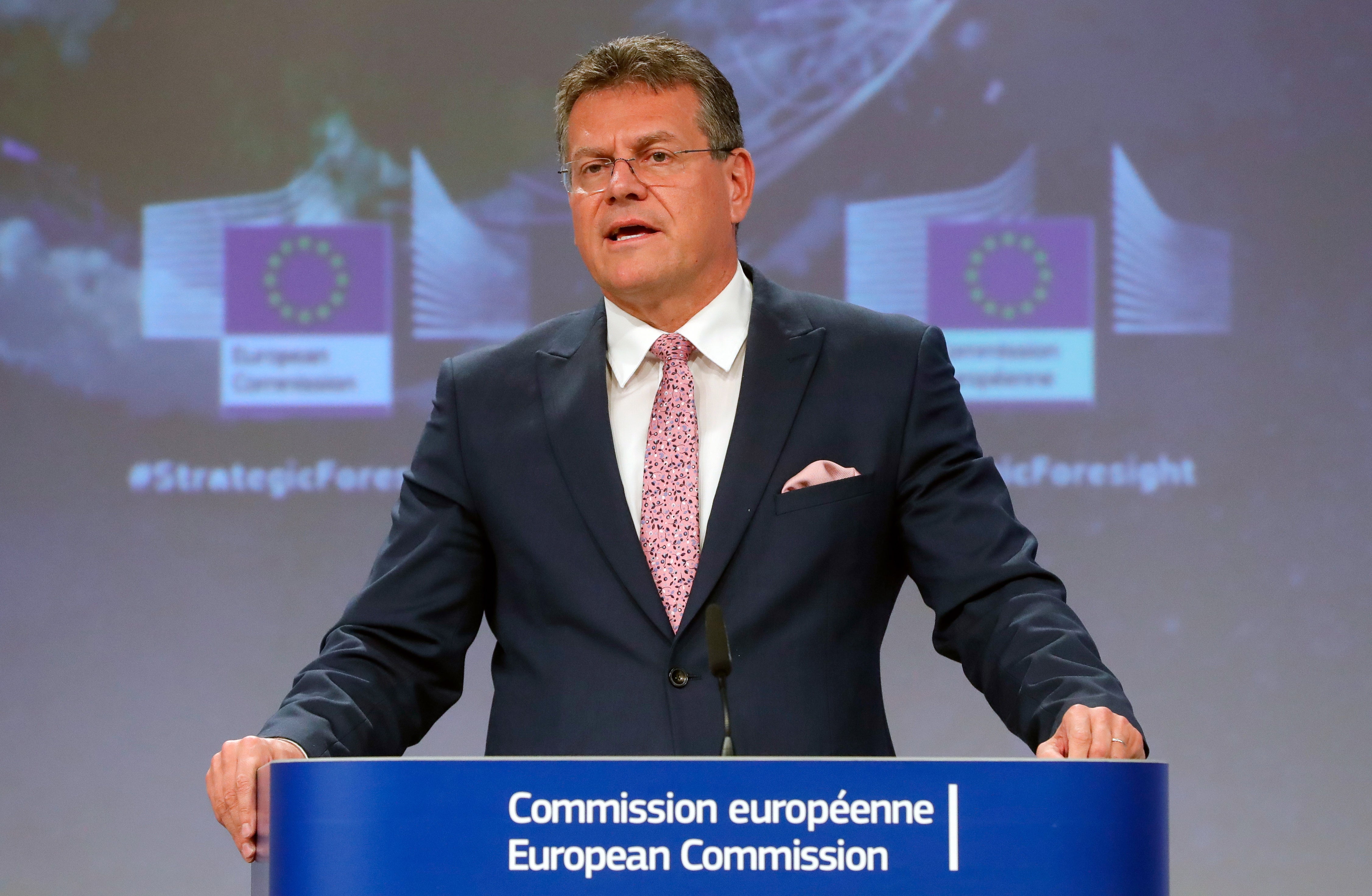EU urges UK to ‘come back to the table’ as it highlights economic harm from Brexit
European Commission vice-president says Brussels wants to get ‘Brexit done’ – while London refuses to talk about Northern Ireland

Your support helps us to tell the story
From reproductive rights to climate change to Big Tech, The Independent is on the ground when the story is developing. Whether it's investigating the financials of Elon Musk's pro-Trump PAC or producing our latest documentary, 'The A Word', which shines a light on the American women fighting for reproductive rights, we know how important it is to parse out the facts from the messaging.
At such a critical moment in US history, we need reporters on the ground. Your donation allows us to keep sending journalists to speak to both sides of the story.
The Independent is trusted by Americans across the entire political spectrum. And unlike many other quality news outlets, we choose not to lock Americans out of our reporting and analysis with paywalls. We believe quality journalism should be available to everyone, paid for by those who can afford it.
Your support makes all the difference.The EU has issued a plea to the UK to “come back to the table” to solve the crisis over Northern Ireland, as it set out the huge economic damage from Brexit.
In a speech in London, the vice-president of the European Commission joked that it is now Brussels that wants to get “Brexit done” – while London has refused face-to-face talks for four months.
Maros Sefcovic called for a fresh push to find “genuine joint solutions” to the battle over the Northern Ireland protocol, telling the event: “We are absolutely ready. Let’s come back to the table.”
It would allow the two sides to “move to the next, I hope, brighter stage of our working relationship”, he argued, calling the UK and the EU “natural allies”.
But the chief Brexit negotiator insisted the EU will not back down in fighting the UK’s “unilateral and illegal” bill to rip up the protocol, which has sparked renewed legal action.
“You’re not going to negotiate when you have a gun on the table,” he warned, calling on the UK to “abandon” the legislation.
And he warned of “consequences” if the government pursues hints it will “slash EU regulation” in financial services, data and food standards, despite promises made when the Brexit deal was signed.
“An end to mutual recognition is a possibility if the UK changes its standards. We will therefore be watching developments closely,” Mr Sefcovic told the event hosted by the Bloomberg news agency.
He set out, in stark terms the growing evidence of economic harm from Brexit, including a 25 per cent plunge in UK good exports to the EU since 2019 and a 7 per cent fall in services trade.
“In times of economic strain, this hurts businesses on both sides of the channel,” Mr Sefcovic warned.
He condemned the protocol bill – which cleared its first Commons hurdle this week – warning it would “lead to constant uncertainty”.
“Put simply: it would not work. Ministers in London would have the freedom to change the rules on a whim,” Mr Sefcovic said.
“A dual regulatory regime, where businesses opt for EU or UK regulations, would bury them under a mountain of bureaucracy.
“This would clearly be a lose-lose situation – for EU-UK relations and, first and foremost, for Northern Ireland.”
He opened his speech by referring to a speech made by then-prime minister David Cameron at Bloomberg in 2013, which set the UK on its the path to the 2016 Brexit referendum.
“I hope we are close to reaching the end of this particular cycle. You may not hear this often from a European commissioner, but it is high time we got Brexit done,” he said.
But Mr Sefcovic refused to say what form the EU retaliation might take if the protocol legislation becomes law – which is not expected to happen until next year, at the earliest.
Join our commenting forum
Join thought-provoking conversations, follow other Independent readers and see their replies
Comments